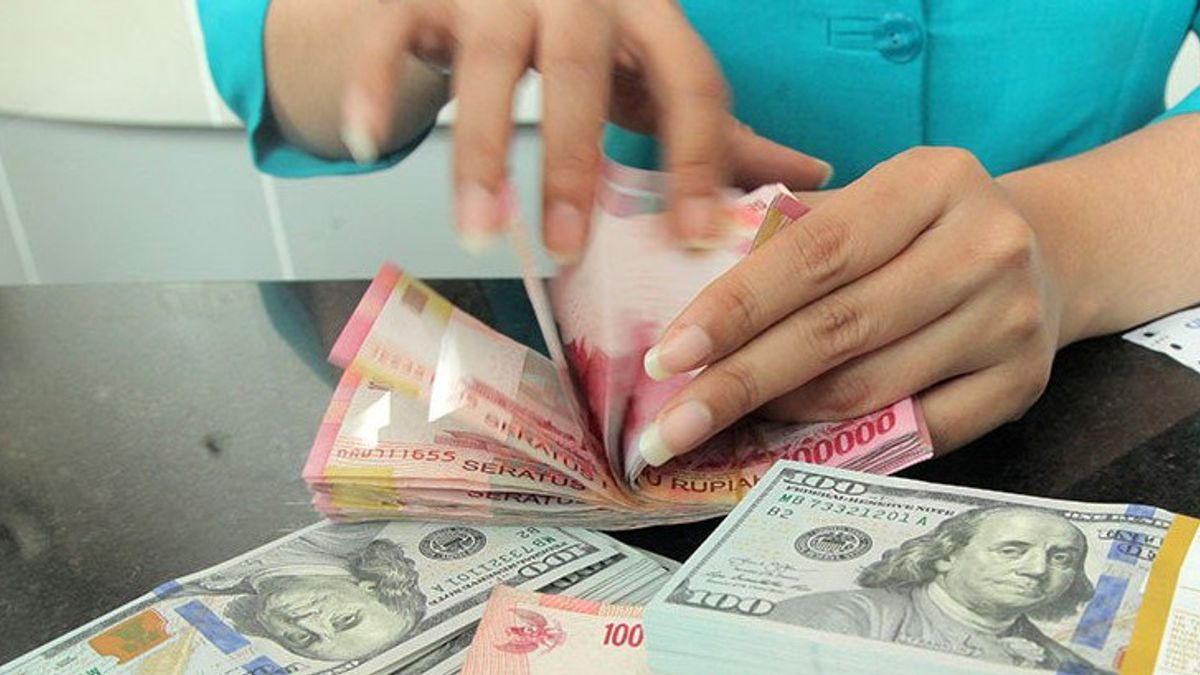JAKARTA - The government has prepared a number of debt management strategies. In carrying out this debt financing policy, there are several basic principles that are carried out by the government.
The debt financing component consists of loans and government securities (SBN) and foreign loans. The government as much as possible continues to control risk so that debt is within safe limits and does not interfere with the sustainability (going concerns) of the state budget (APBN).
One of the control efforts carried out by the Government is to continue to pay attention to the debt ratio so that it remains under control and fulfills the compliance aspect, namely not exceeding the maximum limit stipulated in Law Number 17 of 2003 concerning State Finance of 60 percent of GDP.
"In the current pandemic, tax revenue is not optimal, state revenue is not strong, so debt is an option," explained the Special Staff of the Minister of Finance for Strategic Communication, Yustinus Prastowo, in a webinar entitled "Utilizing Debt for Our Children and grandchildren" held by the Center for Humanitarian and Development Studies (PSKP), Thursday 7 October.
According to Yustinus, debt is only a tool and not the government's goal. In times of emergency such as the current COVID-19 pandemic, debt can be used for development or urgent use.
"So that the government can carry out its functions quickly or in an emergency," he continued.
Meanwhile, Bogor Agricultural University's Economics Lecturer, Iman Sugema, assessed that Indonesia's economic condition tends to be better than other countries during the pandemic.
"Currently, countries in the world are trying to increase their deficits. All over the world, state revenues are relatively declining. Demands to boost the economy are urgently needed, the deficit is widening, so the government prints debt," he said.
It was stated that the performance of the fiscal measures and the COVID-19 attack rate among other G-20 countries, Indonesia was lucky.
"The condition of fiscal measures on GDP is relatively low, and the attack rate is low compared to Singapore and Australia," said Iman.
In addition, Indonesia also did not experience a severe economic contraction compared to other countries.
"Economic growth with India, China, Turkey and Vietnam, Indonesia's economic contraction is relatively smaller than other countries," he said.
Economist of the Center of Reform on Economics (CORE) Indonesia Yusuf Rendy Manilet said that there are several aspects that need to be considered in managing state debt.
"Debt is no problem, as long as it can be used properly," he said.
Yusuf also appreciated the government which has been able to manage the average debt maturity and the risk of volatility from issuing foreign currency debt at a maintained level.
"After the pandemic ends, debt becomes a problem in some countries. It has been predicted," he continued.
The English, Chinese, Japanese, Arabic, and French versions are automatically generated by the AI. So there may still be inaccuracies in translating, please always see Indonesian as our main language. (system supported by DigitalSiber.id)





